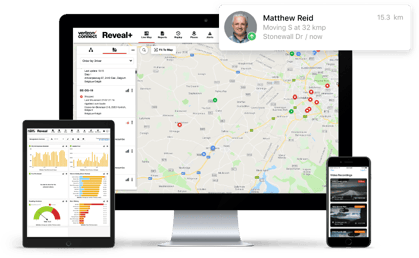9 Secrets to Reducing Fleet Expenses
As a fleet owner, your day-to-day costs can quickly add up. What you don’t know is there are further hidden, expensive...
Read more
As the world’s businesses strive to get ever closer to the utopian vision of a paperless office, there’s an old business mantra that comes up time and time again: ‘Less paperwork means higher profits’. But is it true?
We’re all well aware of the environmental benefits of not printing off an email, but is there also a good business case for cutting out paperwork – and can it really impact your bottom line?
The short answer is yes. Not only does replacing paperwork and moving to digital systems cut down on direct costs such as paper and ink, it can also help your teams make more efficient use of their time.
Put simply, the less time you or your staff spend on paperwork, the more time that could be spent on more business-critical or revenue generating tasks. However, we can’t eradicate admin entirely, so instead we must make use of technology that can help to speed up the process – while also eliminating the need for outdated paper forms.
Find the right solution for your business with our free Fleet Management Buyer’s Guide.
As well as helping your staff to be more productive by freeing up their time, eradicating paperwork can also help to cut down on miscommunication and human error. Most fleet-reliant business owners and fleet managers will know the difficulty of matching up job tickets, receipts and invoices between workers in the field and in the office – particularly if they contain incomplete or incorrect information.
Digitising this process creates an instant electronic paper trail. Fieldworkers can update job status and raise quotes and invoices on their mobile device while on site. This information is then shared automatically with other departments such as accounts, removing the potential for delayed or mislaid paperwork. In some cases, information can be gathered automatically and used to pre-fill what were once manual forms. Data on site arrival and departure times can be used to populate digital timesheets, for example.
Other vital job information, such as receipts and customer signatures, can be captured electronically too and held in the same central location, easily accessible by all. As well as saving time, collecting and storing your vital information in this way removes the need to send documents back and forth, which can be confusing as well as time-consuming.
So, can less paperwork really lead to higher profits? With the use of some clever technology, it certainly helps. See how GPS fleet tracking can help your business cut down on paperwork and potentially boost productivity and efficiency.
Tags: Cost control, Customer service, Data & analytics, Dispatching & scheduling, Payroll, Productivity & efficiency, Safety, Team management




Find out how our platform gives you the visibility you need to get more done.
As a fleet owner, your day-to-day costs can quickly add up. What you don’t know is there are further hidden, expensive...
Read moreVerizon Connect Reveal tracks the fleet data that can have a big impact on your business. These are things like where...
Read moreReveal tracks the fleet data that can have a big impact on your business. These are things like where your vehicles are...
Read moreWork smarter from quote to completion with an end-to-end fleet management solution...
Read more